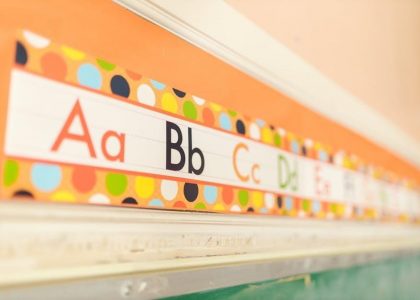Chemistry Final Exam Study Guide⁚ A Comprehensive Plan
This comprehensive study guide will provide you with a structured approach to preparing for your chemistry final exam. We will cover key topics, exam structure, essential concepts, study strategies, resources, practice problems, time management, and a checklist for the day of the exam. By following this guide, you can maximize your chances of success and feel confident in your understanding of chemistry.
Introduction
The chemistry final exam is a significant milestone in your academic journey. It serves as a culmination of your learning throughout the semester, encompassing a wide range of concepts and principles. This study guide is designed to help you navigate the complexities of chemistry and prepare effectively for this crucial assessment. We’ll delve into the essential topics covered, provide insights into exam structure and format, and offer valuable study strategies and resources to enhance your understanding and boost your confidence.
Whether you’re aiming to solidify your foundational knowledge or seeking to refine your problem-solving skills, this guide will serve as your roadmap to success. By embracing a structured approach to studying and utilizing the resources provided, you can approach your final exam with a sense of preparedness and a clear understanding of the material.
Key Topics Covered in a Typical Chemistry Final Exam
A typical chemistry final exam will cover a broad spectrum of topics, encompassing fundamental principles and their applications. While specific content may vary based on your course curriculum, here are some common areas that are likely to be included⁚
- Atomic Structure and Bonding⁚ Understanding the building blocks of matter, including atomic structure, periodic trends, and the different types of chemical bonds.
- Chemical Reactions and Stoichiometry⁚ Balancing chemical equations, predicting reaction products, and calculating quantities of reactants and products.
- Thermochemistry and Thermodynamics⁚ Concepts related to heat transfer, enthalpy, entropy, and Gibbs free energy.
- Solutions and Equilibrium⁚ Understanding the properties of solutions, solubility, and equilibrium constants.
- Acids and Bases⁚ Defining acids and bases, understanding pH and pOH, and working with acid-base reactions.
- Redox Reactions and Electrochemistry⁚ Identifying oxidation and reduction processes, balancing redox reactions, and understanding electrochemical cells.
This list provides a general overview of the topics typically covered in a chemistry final exam. It’s essential to consult your syllabus and previous exams to identify specific areas of emphasis for your course.
Exam Structure and Format
Chemistry final exams can take various forms, but some common structures include⁚
- Multiple Choice⁚ These questions assess your understanding of basic concepts and require you to select the correct answer from a list of options. They are often used to test a broad range of topics.
- True/False: These questions test your knowledge of specific facts and require you to determine whether a statement is accurate or not. They can be used to assess your understanding of definitions, principles, and experimental results.
- Short Answer⁚ These questions require you to provide concise and accurate answers to specific questions, demonstrating your understanding of concepts and your ability to apply them.
- Problem Solving⁚ These questions involve applying chemical principles to solve numerical problems, requiring you to show your work and explain your reasoning.
- Essay⁚ These questions allow you to demonstrate your in-depth understanding of a topic by providing a comprehensive and well-structured response.
Your instructor will likely provide information about the exam structure and format, including the number of questions, time limit, and specific topics covered. It’s crucial to familiarize yourself with these details to optimize your study strategy.
Essential Concepts and Theories
A strong understanding of fundamental chemistry concepts is essential for success on your final exam. Here are some key areas to focus on⁚
- Atomic Structure⁚ Learn about the basic building blocks of matter, including protons, neutrons, and electrons, and how they relate to atomic number, mass number, and isotopes.
- Chemical Bonding⁚ Understand the different types of chemical bonds, including ionic, covalent, and metallic bonds, and how they influence the properties of molecules and compounds.
- Nomenclature and Formulas⁚ Master the rules for naming inorganic compounds and writing their chemical formulas, including ionic compounds, acids, and bases.
- Chemical Reactions⁚ Be familiar with different types of chemical reactions, including synthesis, decomposition, single replacement, double replacement, and combustion reactions.
- Stoichiometry⁚ Understand how to balance chemical equations and use mole ratios to calculate the amounts of reactants and products in a chemical reaction.
These concepts are interconnected and form the foundation for understanding more advanced chemistry topics.
4.1. Atomic Structure and Bonding
Atomic structure and bonding are foundational concepts in chemistry. A solid understanding of these topics will allow you to comprehend the behavior of atoms and molecules in various chemical reactions. Here are some key areas to focus on⁚
- Atomic Structure⁚ Review the basic components of an atom, including protons, neutrons, and electrons. Understand how atomic number and mass number are determined, and how isotopes differ in their neutron count.
- Electron Configuration⁚ Learn how electrons are arranged in energy levels and orbitals around the nucleus. Master the rules for writing electron configurations and understanding their relationship to an element’s chemical behavior.
- Periodic Trends⁚ Explore how properties like electronegativity, ionization energy, and atomic radius vary across the periodic table. Understand the basis for these trends and their implications for chemical bonding.
- Chemical Bonding⁚ Dive deep into the different types of chemical bonds⁚ ionic, covalent, and metallic. Learn the characteristics of each bond type, how they form, and how they influence the properties of compounds.
By mastering these concepts, you will gain a strong foundation for understanding the diverse world of chemistry.
4.2. Chemical Reactions and Stoichiometry
Chemical reactions are the heart of chemistry, and stoichiometry is the language we use to quantify them. A firm grasp of these concepts will enable you to predict the outcome of reactions and understand the quantitative relationships between reactants and products. Focus on these key areas⁚
- Types of Chemical Reactions⁚ Familiarize yourself with different reaction types, such as combination, decomposition, single displacement, double displacement, and combustion. Learn to recognize and classify reactions based on their characteristics.
- Balancing Chemical Equations⁚ Master the art of balancing chemical equations to ensure that the number of atoms of each element is equal on both sides of the equation. This is crucial for accurate stoichiometric calculations.
- Stoichiometric Calculations⁚ Practice using mole ratios from balanced equations to calculate quantities of reactants and products. This includes converting between grams, moles, and volumes, as well as determining limiting reactants and percent yield.
- Solution Stoichiometry⁚ Extend your understanding of stoichiometry to reactions in solution. Learn how to calculate concentrations, volumes, and moles of reactants and products in solutions, and apply this knowledge to titration problems.
Through practice and understanding, you’ll be able to navigate the world of chemical reactions with confidence.
4.3. Thermochemistry and Thermodynamics
Thermochemistry and thermodynamics delve into the relationship between energy and chemical reactions. Understanding these principles allows you to predict whether a reaction will occur spontaneously and to calculate the amount of heat involved. Here’s what to focus on⁚
- Enthalpy and Heat Changes⁚ Master the concepts of enthalpy and the enthalpy change (ΔH) associated with a reaction. Learn how to calculate enthalpy changes using Hess’s Law and standard enthalpy of formation data.
- Spontaneity and Entropy⁚ Explore the concepts of spontaneity and entropy (ΔS). Understand how entropy relates to the randomness or disorder of a system. Learn to use the Gibbs free energy change (ΔG) to predict the spontaneity of a reaction.
- Thermodynamic Equilibrium⁚ Familiarize yourself with the concept of thermodynamic equilibrium. Understand how the equilibrium constant (K) relates to ΔG and how it can be used to predict the direction of a reaction under non-standard conditions.
- Calorimetry⁚ Learn the basics of calorimetry, which involves measuring heat changes in chemical reactions. Understand how to use a calorimeter to determine the specific heat capacity of a substance or the enthalpy change of a reaction.
By mastering these concepts, you’ll gain a deeper understanding of how energy flows in chemical reactions.
4.4. Solutions and Equilibrium
Solutions are homogeneous mixtures that play a crucial role in chemistry. Understanding their properties and the concept of equilibrium is essential for predicting and controlling chemical reactions. Here’s a breakdown of key topics⁚
- Solution Concentration⁚ Master the various ways to express solution concentration, including molarity, molality, percent by mass, and parts per million. Learn how to calculate these concentrations and how to use them to solve problems involving solutions.
- Solubility and Dissolution⁚ Explore the factors that influence solubility, such as temperature, pressure, and the nature of the solute and solvent. Understand the concept of dynamic equilibrium in saturated solutions and how to predict solubility trends.
- Chemical Equilibrium⁚ Familiarize yourself with the concept of chemical equilibrium, where the rates of the forward and reverse reactions are equal. Learn to write equilibrium expressions (K) and understand how to apply the law of mass action to predict the direction of a reaction.
- Acid-Base Equilibria⁚ Explore the equilibrium of acids and bases in solutions. Understand the concepts of pH and pOH, and learn how to calculate these values for weak acids and bases.
By mastering these concepts, you’ll gain a strong foundation for understanding the behavior of solutions and chemical reactions.

4.5. Acids and Bases
Acids and bases are fundamental chemical concepts with wide-ranging applications. Understanding their properties, reactions, and equilibrium is crucial for comprehending various chemical phenomena. Here’s a breakdown of key topics⁚
- Brønsted-Lowry Theory⁚ Learn the definition of acids and bases according to this theory, which focuses on the transfer of protons (H+). Understand how to identify conjugate acid-base pairs.
- pH and pOH⁚ Master the concepts of pH and pOH, which measure the acidity and basicity of solutions, respectively. Learn how to calculate these values using the hydrogen ion concentration and the hydroxide ion concentration.
- Strong and Weak Acids and Bases⁚ Differentiate between strong and weak acids and bases based on their degree of ionization in solution. Understand the concept of acid dissociation constant (Ka) and base dissociation constant (Kb) and how they relate to the strength of acids and bases.
- Acid-Base Reactions⁚ Learn about neutralization reactions between acids and bases, which produce salt and water. Understand how to predict the products of such reactions and how to calculate the pH of the resulting solution.
By understanding the concepts of acids and bases, you’ll be able to interpret chemical reactions and analyze the properties of solutions.

4.6. Redox Reactions and Electrochemistry
Redox reactions, also known as oxidation-reduction reactions, involve the transfer of electrons between species. Electrochemistry focuses on the relationship between chemical reactions and electrical energy. This section will cover key concepts related to redox reactions and electrochemistry⁚
- Oxidation and Reduction⁚ Understand the definitions of oxidation (loss of electrons) and reduction (gain of electrons). Learn how to identify oxidizing and reducing agents in a redox reaction.
- Balancing Redox Reactions⁚ Master the techniques for balancing redox reactions using the half-reaction method. This involves separating the reaction into two half-reactions (oxidation and reduction) and balancing each half-reaction individually before combining them.
- Electrochemical Cells⁚ Familiarize yourself with the components of electrochemical cells, including electrodes, electrolytes, and the salt bridge. Understand how these components work together to generate electrical energy or facilitate chemical reactions.
- Electrode Potentials⁚ Learn about standard electrode potentials (E°) and how they are used to predict the spontaneity of redox reactions. Understand the relationship between cell potential (Ecell) and free energy change (ΔG).
These concepts form the basis of many important applications, including batteries, corrosion, and electrolysis.
Study Strategies and Tips
Effective study strategies are crucial for success in your chemistry final exam. Here are some tips to help you maximize your learning and retention⁚
- Active Recall⁚ Instead of passively reading your notes or textbook, test yourself regularly. Use flashcards, practice problems, or create your own quizzes to actively recall information. This method helps strengthen your understanding and identify areas that need more review.
- Spaced Repetition⁚ Space out your study sessions over time, rather than cramming everything in at the last minute. Review material at increasing intervals (e.g., daily, weekly, monthly) to reinforce learning and improve long-term retention.
- Concept Mapping⁚ Create visual representations of key concepts and their relationships. This can be done through mind maps, diagrams, or flowcharts. Visual aids help you organize information and see the bigger picture.
- Practice Problems⁚ Work through numerous practice problems to solidify your understanding of concepts and develop problem-solving skills. Focus on understanding the underlying principles and applying them to different scenarios.
- Seek Clarification⁚ Don’t hesitate to ask your teacher or classmates for clarification on any concepts that are unclear. Understanding the material thoroughly is key to achieving a good score.
Remember, consistent effort and strategic study habits are essential for success in your chemistry final exam.
Recommended Resources
In addition to your textbook and class notes, several resources can enhance your understanding and preparation for the final exam. Explore these options to supplement your learning⁚
- Online Study Guides and Websites⁚ Websites like Quizlet, Khan Academy, and Chemistry LibreTexts offer comprehensive study guides, practice problems, and interactive tutorials covering various chemistry topics.
- Chemistry Textbooks and Solutions Manuals⁚ Look for supplementary textbooks or solutions manuals for your specific chemistry textbook. These resources can provide additional explanations, examples, and practice problems.
- Chemistry Study Apps⁚ Several mobile apps cater specifically to chemistry learning, offering flashcards, quizzes, and interactive simulations to reinforce concepts and enhance your understanding.
- Chemistry Tutoring Services⁚ If you’re struggling with specific concepts, consider seeking assistance from a chemistry tutor. Tutors can provide personalized guidance, address your individual needs, and help you overcome learning challenges.
- Past Exams and Practice Problems⁚ If available, review past exam papers or practice problems from previous years. This can give you valuable insights into the exam format, question types, and difficulty level.
Remember, utilizing a variety of resources can provide a well-rounded and comprehensive approach to preparing for your chemistry final exam.





